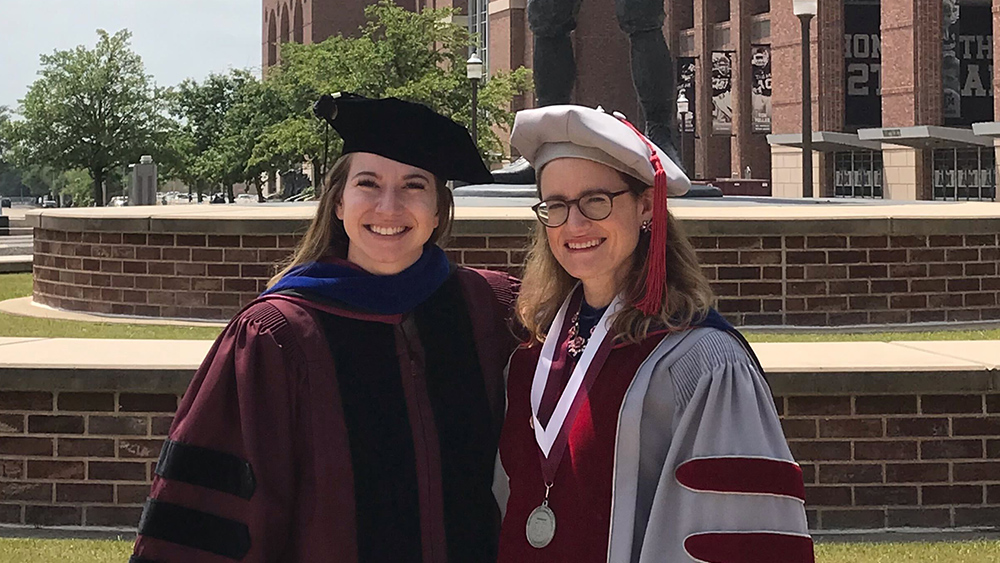
While most dynamic duos are known for saving the world, this duo is on a mission to change it by reimagining more sustainable batteries.
Former Texas A&M University materials science and engineering doctoral student Dr. Alexandra Easley will receive the American Chemical Society (ACS) Global Outstanding Graduate Student award along with her mentor, chemical engineering professor Dr. Jodie Lutkenhaus.
The award honors both the student and mentor in the Polymer Materials Science and Engineering field. According to the ACS website, the society advocates for innovative technology and business, investments and policy to develop a holistic approach to advancing the transformational power of chemistry.
Both Easley and Lutkenhaus will receive the award in August in San Francisco. The nomination for the award was made by the candidate’s thesis supervisor and evaluated on Easley’s own research.
Sustainable batteries
Easley received her Ph.D. from the Department of Materials Science and Engineering at Texas A&M, where she worked with Lutkenhaus as a National Science Foundation Graduate Research Fellow.
Her research focused on the fundamental properties and applications of non-conjugated polymers for energy storage in sustainable batteries.
“The research was working on finding alternatives to lithium-ion batteries and trying not to use the metals currently used in the batteries due to ethical concerns,” Easley said. “We're dependent on foreign countries currently for the batteries, so I was looking at different materials that could be used and could be sourced domestically — specifically plastics or polymers.”
Part of Easley’s research focused on battery disposal and how it could be degraded, theoretically eliminating the environmental footprint that metal batteries currently have.
“We may not have had the best performance in the battery produced in the lab, but we inspired others in the field to think about what happens after batteries are used and whether we can use better materials in batteries instead of what is just used regularly,” Easley said.
Easley was the first in Lutkenhaus’ lab group to address this issue of sustainable batteries, which has been a continued theme since she graduated, Lutkenhaus said.
“She has started a whole new conversation about how we think about batteries,” Lutkenhaus said. “We should not be throwing them away. We should consider the sustainability and the recyclability of a battery, and Alexandra has shown ways we can get away from using cobalt, which is a very critical element.”
Mentorship
Lutkenhaus’ role as a mentor was partially to keep Easley’s spirits up when an experiment didn’t go as expected and to help figure out the complications of the research.
“My role as a mentor was to steer Alexandra away from failed experiments and to intervene when things weren't working,” Lutkenhaus said. “It is important to be able to guide my students in the right direction and to teach them how to embrace failure so they can learn from it.”
Another part of Lutkenhaus' mentorship process is the training aspect on the technical level, along with teaching students how to understand and pick a problem apart.
“I think the key thing I'm now seeing in my current position is how she has set up group meetings to include a presentation of a journal article and research talk every week in different areas,” Easley said. “That really did help, and I learned so much beyond my project. It's a skill I still use in my area of research. Everything provided within the lab, like the instruments, equipment and her mentorship, made the projects possible.”
Easley has continued to reflect on areas of research from her own lab from Lutkenhaus and hopes to mentor students as she was mentored, she said.
“Over the time that I've mentored Alexandra, it's been really fun to see her develop into her full potential,” Lutkenhaus said. “It’s also very gratifying for me because all that time invested is really paying off for each individual student. It's fulfilling to see Alexandra move on to her postdoc and now to see her receive this award.”